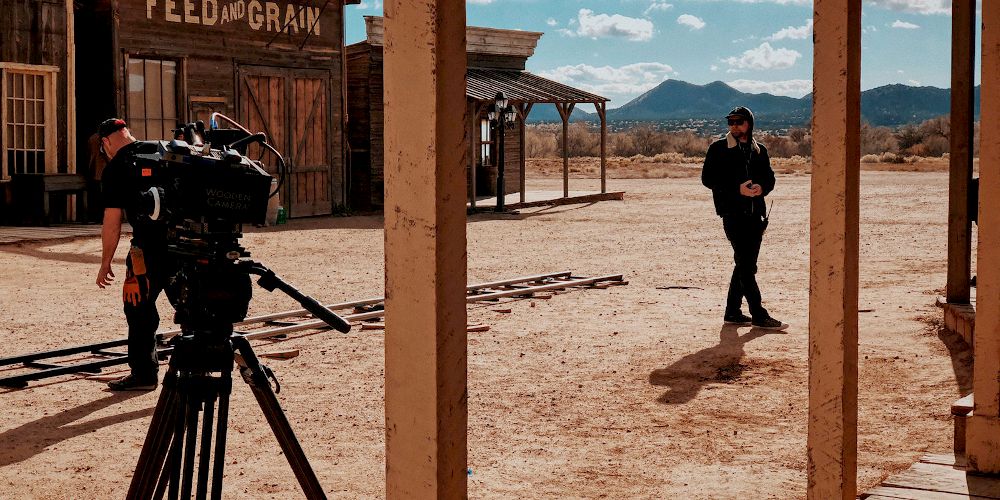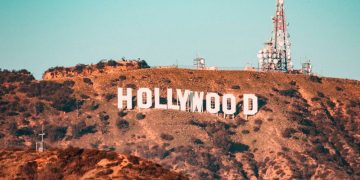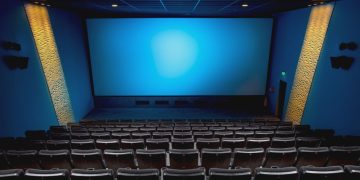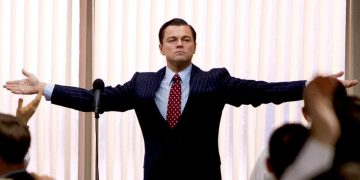You may have heard that certain films are "poorly written," and you may even have had the same exact thoughts when watching the latest summer blockbusters.
But was that film actually written poorly? You can't know for sure unless you've read the script for said films. A lot of times, when a film's writing is criticized it's actually the director's fault.
That's why we hear such praise for star directors like David Fincher, Christopher Nolan, Martin Scorsese, Steven Spielberg, and the list goes on. They're the ones in control.
How many star scriptwriters—excluding writer-directors like Wes Anderson and Aaron Sorkin—can you name off the top of your head? Probably none, unless you're involved in the scriptwriting scene.
Should directors receive all the credit and writers forgotten? Is this right? Is this fair? To better understand whether writers or directors are more important to a movie, we have to understand what each one's role is in filmmaking.
What Does the Writer Do for a Film?

The writer has only one job: write the script.
Writing the script involves conceiving story ideas, building the world, designing characters and personalities, weaving the story, tightening up the dialogue, and combine it all into a cohesive narrative experience.
The writer only needs to write what's absolutely necessary for the story to be told, like the structure of plot points and how character dynamics change.
Strictly speaking, there's usually no "stage direction" in a script (except in the case of writer-directors). It isn't the writer's job to show how scenes unfold on camera—their only job is to capture what happens, to whom, and where it all unfolds. Underpinning all of this is the reason why this story must be told.
For book adaptations, the writer's job is to distill the source material and decide which parts are the most essential for effectively conveying the heart of the story.
This may include rewriting scenes from the book, or adding new scenes to replace "unfilmable" scenes in the book, or lifting scenes verbatim right out of the book.
There's no correct way to adapt books to film, and it's the writer's responsibility to figure it out.
What Does the Director Do for a Film?
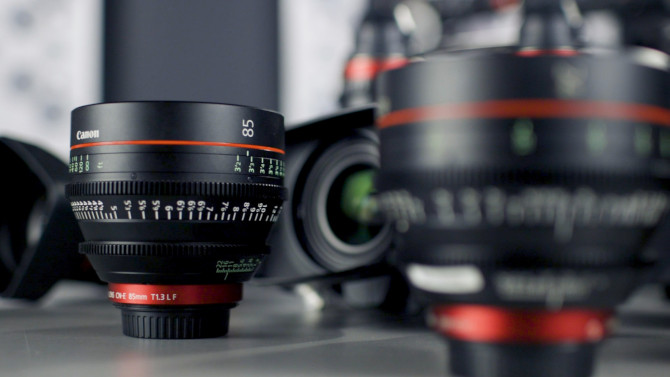
In most cases, the writer is no longer involved once the script is complete and handed off to a director.
The director's job is to digest the script, envision how it plays out on camera, and then make it happen by working with the actors and production crew.
Think of the film script as a blueprint, and the film director as a general contractor who leads and works with many subcontractors in different departments.
If you were to hand the same exact script to ten different directors, the resulting films would all look different.
For example, a simple dialogue scene between husband and wife at dinner can be filmed in a thousand ways: Close-up shots or wide shots? Over-the-shoulder or straight-on? Which camera lenses and settings should be used per scene?
What kinds of camera movements, or no camera movement at all? Bright lighting or dramatic lighting? What kind of color palette? Mellow energy or high-strung energy? Should the actors stay seated or should they interact with the environment?
The director must make these kinds of decisions—and many more—according to their vision of the script.
And if the director doesn't think the script works as written? They could bring the writer back for a rewrite, or the director may just adjust it on their own.
The director must also work with the actors to bring out their best performances. Every director has their own approach to actor collaboration, of course, and that's why certain actors love working with certain directors while others vow to never work with a particular director ever again.
After everything is filmed, the director must then work with post-production teams to turn the raw footage into an actual film. This includes VFX teams, film editors, composers, sound designers, etc.
In every case, the creative vision of the director takes priority, but the director may choose to entrust certain decisions to whoever they're working with.
For example, Christopher Nolan often describes his vision for a film to frequent collaborator Hans Zimmer, then entrusts him with scoring the film because he's so good at what he does.
The Unsung Heroes: Film Editors
Once all scenes have been shot, the footage is handed over to a film editor, who goes through every shot and decides which ones are necessary to bring the director's vision to life.
The director and film editor work together—the film editor must understand what the director wants, without injecting his own opinions unless requested.
Just as a script can be interpreted in many ways by different directors, the footage can be cut together in many ways by different editors.
If the director expresses that he wants a scene to be "frantic" and "chaotic," it's up to the editor to know which clips to include, from which angles, which ones to leave out, how long each particular clip should be, how often to cut between clips, in which order the clips should be stitched together, etc.
Want to see an example of how poor editing can ruin good footage? Check out the infamous "Queen Meets John Reid" scene in Bohemian Rhapsody below.
Even though it's a simple two-minute dialogue scene, the cuts are jarringly fast and furious. Count how many times it happens, and try not to get nauseated while you do:
And here's another example from Taken 2, which shows fifteen cuts in a six-second clip. Yeah, it's as ridiculous as it sounds:
Film Directors Deserve the Credit
The final movie contains more of the director's creative vision than the original writer's creative vision.
In that sense, directors take on the majority of risk in creating a film. They deservedly receive most of the praise when the result is good, and most of the criticism when the result sucks.
Many "bad films" start out as "good scripts" (after all, a script wouldn't be optioned if it was that bad to begin with).
A terrible director can turn a smart script into a travesty, while a great director can rework a subpar script into something magical. They put in the work, they take on the risk, and they reap the rewards (or not).
It's like asking which is more important on a bike: the wheels or the pedals? Bikes would be inoperable without either, and both are crucial to be considered complete—a film needs both a writer and a director. But the pedals drive the bike forward.
The director influences more of the finished product than the writer does, so the director is more important for a film.
